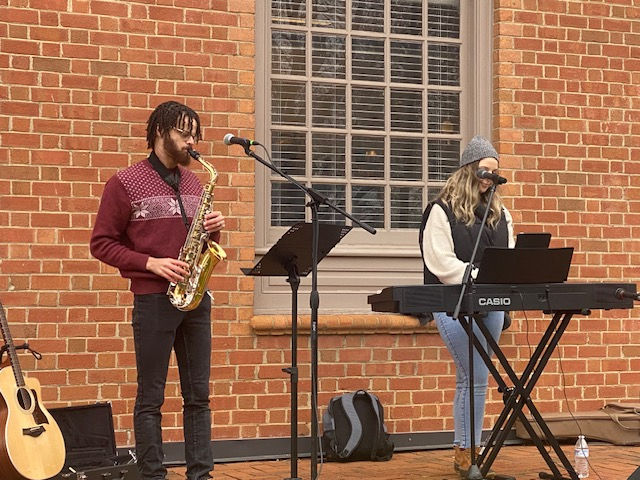“Are You in Good Hands?” The Professional Pathway to Becoming a MT-BC
- director863
- Aug 26, 2025
- 3 min read
Updated: Aug 28, 2025
Written by: Ashton Becks, Music Therapy Intern
Hi! I’m Ashton, and I am super excited about joining the Piedmont Music Therapy (PMT) team for the next several months as a Music Therapy Intern. When I think about the word “intern” I envision a guy doing coffee runs and shredding papers, organizing filing cabinets and being in a small cubicle, don’t you?
Well, the great thing about this internship is that this is one of, if not the most hands on, immersive, and critical step in my aspirations to become a Music Therapist - Board Certified (MT-BC). The internship is one of many qualifying steps that all music therapists, including those right here at PMT embark on in order to practice. My hope is that by seeing the thorough process that is in place, you’ll be encouraged with PMT’s team and also have the utmost confidence and faith in music therapy as a professional field!

Step number one: having a heart to empathize, empower, encourage others by way of music and musical expression! The catalyst of it all! Before that heart can go and practice though, there are practical steps to receive the training necessary. This begins with secondary education that can look a few different ways. The traditional route would be to earn your Bachelor’s in music therapy at an American Music Therapy Association (AMTA) approved university, but you can also earn an equivalency degree if you have a Bachelor’s degree in a related subject or earn a Master’s in music therapy after previously completing a Bachelor’s in Music. All programs must adhere to an approved curriculum that includes courses like Music Theory, Music History, Piano, Guitar, and Vocal Foundations, Research Methods, Psychopathology, Developmental Psychology, Music Therapy Methods and Techniques, along with Clinical Experiences and many more. The AMTA Website has a few great charts and indepth details about this process.
Completing the extensive course load leads to where I am now: the Music Therapy Internship. Music therapy students are required to complete 1200 hours of clinical training, and the internship takes up the bulk of those hours. Those clinical experiences I mentioned happen during the course working years and usually fulfill 100-200 hours of the requirement depending on how the university sets it up. This internship can be done almost anywhere which is pretty cool. As long as it has been either affiliated through their university or accredited through the AMTA National Roster, music therapy students can apply and interview. For example, one of my classmates at Charleston Southern University in Charleston, SC wanted to move to Utah for years and is currently completing her internship at a National Roster Site in Salt Lake City! During an internship, students like me will begin by observing and taking notes on sessions. As the months progress, I’ll be able to plan, document, lead, and learn under the supervision of a MT-BC who has been approved to supervise. A place like PMT gives me a chance to learn about various people, populations, initiatives, and needs in a constructive learning environment. Internships often include projects, outside observations, regular evaluations, and presentations to sharpen all those skills needed to be successful in the field.
Once I’m finished up, I’ll walk that graduation stage and head to sit for my Board Exam; you can’t practice music therapy without taking it. This sets a high standard of excellence for the field of music therapy to prove that a student’s coursework and internship have adequately prepared them to take care of those you love. Once the test is passed, you can put those four letters, MT-BC, by your name!
The Certification Board for Music Therapists also has put in place ways to ensure a continued education for practicing music therapists. Getting a Master’s or Doctorate degree, attending conferences, doing research, and teaching students at the secondary level are a couple ways that music therapists can receive credit to continue renewing their credentials to practice. With music therapy as a whole growing as fast as it is, the field has ensured music therapists are taken care of and your friends, family, and community are getting the best treatment possible!
So, to answer the title: a resounding yes! The world is absolutely in good hands thanks to the people who care about properly educating, training, and encouraging those all across America as well as right here at PMT! Let’s continue to grow together, shall we?




Comments